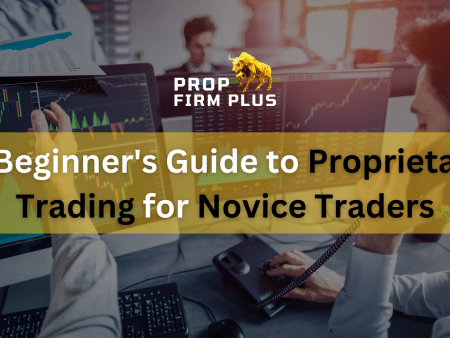
A Funded SIM or LIVE Trading Account is granted to traders upon successful completion of TradeDay’s Evaluation. In compliance with TradeDay’s withdrawal policies, traders can request payouts and get paid a percentage of the gains.
TradeDay’s payout policy lets traders keep 100% of their gains before the first $10,000 in profits, and 90% of their profits after that. There are no limitations on the frequency of withdrawal requests made by traders. There is a $500 minimum withdrawal requirement, though.
Funded SIM and Funded Live account holders go through significantly different procedures when seeking payouts at TradeDay. Funded Live payout requests must be filed by 11.30 am for same-day processing, and Funded Sim payout requests are handled following the day’s trading report, which is run at 4:30 pm CT. Funded Live account requests submitted after this time will be handled after 12 p.m. on the next business day.
What Is the Payment Policy of TradeDay?
TradeDay’s payout policy offers unrestricted withdrawal frequency with a $500 minimum, processes Funded Live requests by 11:30 am for same-day processing, and specifies fees for different withdrawal methods. Funded SIM payouts are processed after the daily report. The following is a summary of the main features of TradeDay’s payout and withdrawal policy:
- With no limitations on withdrawals, traders keep the first $10,000 they earn and 90% of the gains after that.
- With no limitations on the frequency of withdrawals, profits can be taken out at any time; however, a $500 minimum withdrawal amount is required.
- Funds are paid to the trader’s Riseworks account within 24 hours of the end-of-day transaction report being finalized, which includes funded SIM payment requests.
- Payout requests for Funded Live accounts are handled the following business day if they are received after 11.30 am; otherwise, they are processed the same day.
- The prices for withdrawals are spelled out in detail in the policy. These fees include $15 for international bank wire withdrawals, free for US bank wire withdrawals, $2.50 for L1 cryptocurrency withdrawals (with projected gas fees), and free for L2 cryptocurrency withdrawals.
How Does Tradeday’s Payment Procedure Operate?
From a trader’s request to the completion of payment, TradeDay’s payout procedure consists of the following steps:
- Trader Requests Payment: To start the payment procedure, the trader sends an email to support@tradeday.com. Riseworks requires traders to be onboarded before they may submit a payment request.
- Handling the Request: Payout requests for Funded Sim traders are handled at 4:30 pm CT following the day’s trading report. Payout requests submitted before 11:30 am are handled for same-day transfer for funded live traders.
- Fund Transfer to Riseworks: Following the processing of the payment request, TradeDay funds the trader’s Riseworks account with the desired amount.
- Trader Uses Riseworks to Access Funds: Once the money is sent to Riseworks, the trader has access to it. Riseworks offers both bank wire and bitcoin as payout alternatives.
- Receiving the Profit: The Trader gets financial rewards through Bank Wire Withdrawals or Crypto Withdrawals at Riseworks.
What Are the Payment Limitations on Tradeday?
The structure of TradeDay’s payment limitations is as follows:
- Prohibited Countries: In accordance with directives from US FCMs (clearing firms) and brokers, TradeDay prohibits traders from nations with inadequate data protection or regulatory frameworks.
- Account Type: During the assessment stage, payouts are not accessible. Only accounts that are Funded SIM and Funded Live are eligible for payouts.
- Minimum Payout: Withdrawals of less than $500 are prohibited.
What Should I Know About Tradeday Payment Taxes?
In relation to TradeDay taxes, it’s crucial to remember the following:
Status as an Independent Contractor: Traders that get funding from TradeDay are regarded as independent contractors rather than workers of TradeDay. The way that profits are reported for tax reasons is affected by this categorization.
Reporting Income: Within a year, traders must declare as regular income only the actual withdrawals from their accounts. According to this method, just the amounts that are withdrawn—rather than all earnings—must be declared for taxation.
Tax Documentation for US Citizens: Riseworks will send a 1099-NEC form to US citizens whose withdrawals exceed $600 in a given tax year.
Non-US Citizens: Since the 1099-NEC form relates only to US tax reporting obligations, traders who are not US citizens will not get one. TradeDay does not offer tax reporting documentation to foreign countries.
TradeDay’s Non-Advisory Role: It is stated clearly that TradeDay is unable to give tax advice services or recommendations regarding filing taxes.
Business Entity Trading: The manual KYC (Know Your Customer) procedure may take some time for traders operating under a single-person LLC with its headquarters in the United States.
Is TradeDay Profitable?
TradeDay does really compensate its traders. TradeDay has gained recognition for providing funded accounts with actual money at the beginning of the financing process since 2020. TradeDay is regarded as reputable by traders worldwide, as evidenced by its 4.6 out of 5 stars rating and more than 600 reviews on Trustpilot. Traders attest that starting on the day they achieve gains in their funded accounts, they remove their winnings in accordance with the terms of the profit split agreement.
Will Withdrawals Impact The Trading Guidelines On Tradeday?
TradeDay’s trading regulations, namely the Trailing Maximum Drawdown (TMD), are susceptible to impact from withdrawals. The “gross” account balance—which includes all gains before any withdrawals—is used to modify the TMD. As a result, the gross balance drops when a trader takes money out, lowering the TMD limit. Because of the TMD decrease, there is less safety buffer before the auto-liquidation threshold is reached.










